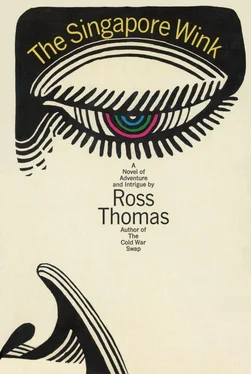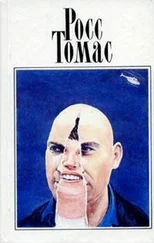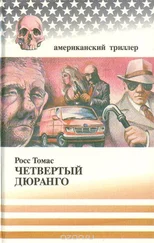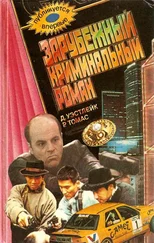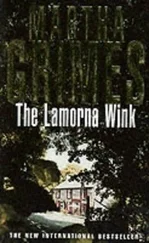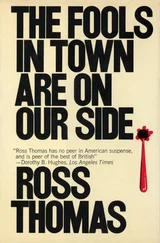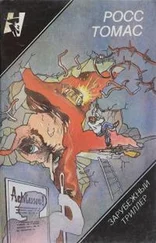Our driver shouted something and then slammed on his brakes. I rolled off the seat onto Trippet. He squirmed under me and I managed to get back to a sitting position and noticed that a crowd was gathering.
“The neighbors are here,” I said.
Trippet raised up to look around. “So they are. Any damage?”
“The rear window and my nerves.”
“Do you have any money?”
“Sure.”
“Give me fifty dollars.”
The driver was now outside of the car, explaining to the interested bystanders how it had happened and his gestures were a pleasure to watch. Trippet got out the left door and walked up to the driver and said something into his ear while pressing the bills into a hand that momentarily was not in flight. The driver peeked at the denominations, smiled, and hurried around to open the door for Trippet The crowd watched us drive away. A four- or five-year-old boy waved for no good reason and I waved back.
“It was an accident, sir,” the driver said.
“I’m sure of it,” Trippet said.
“But the rear window.”
“A sad loss, but fortunately replaceable.”
“Perhaps after all one should inform the police.”
“It would only inconvenience them,” Trippet said.
“If only I could be certain it was indeed an accident,” the driver said.
Trippet stretched his hand out to me, palm up, and I laid two Singapore twenty-dollar bills across it. Trippet folded them and tapped the driver on the shoulder. “Perhaps this will give you the certainty you seek,” he said.
The driver’s right hand came up over his right shoulder and his fingers closed over the bills. He didn’t turn his head. He glanced down at the numerals on the bills and then tucked them into his shirt pocket “Truly,” he said, “it was a most regrettable accident.”
Trippet knocked on my door after he had unpacked, showered, and changed clothes. The temperature outside was pushing ninety and the humidity was even higher. Both of us had been sopping by the time we reached the hotel.
“Gin and tonic?” I said. “My boy brought some fresh limes.”
“Anything,” Trippet said.
I mixed the drink and handed it to him.
“We’ll drink to your first Singapore shoot-’em-up,” I said.
“I still expect to go into shock any moment,” Trippet said. “I must say that it didn’t seem to bother you much; but perhaps you’re used to it by now.”
“It scared the shit out of me. I thought you were the one who wasn’t bothered.”
“I nearly panicked,” he said, “and I must confess that I also noticed a slight looseness of the bowels. Any idea who it was?”
“It looked like the same car that one of Sacchetti’s men used on Raffles Place the other day. It could have been the same car, but I don’t know if it was the same man.”
“Perhaps I should call Sammy,” Trippet said.
“Lim?” I said.
“Yes. Any objections?”
“He bothers me.”
“You mean it bothers you that Sammy said that I called him and I say that he called me. I wouldn’t worry about it.”
“Why?”
“He simply told you what you wanted to hear, Edward. It was a face-saving gesture. It would have embarrassed him to tell you that he thought you needed help.”
“Sorry. I forgot how sensitive I am.”
“Tell me about it.”
“What?” I said.
“Everything.”
“You mean the Dragon Lady and all?”
“Good Lord, is there another woman mixed up in it?”
“Sacchetti’s Chinese wife. I think she steals her lines from old Charlie Chan movies.”
“Extraordinary.”
“Who’s minding the store?” I said.
“I shipped both Sydney and my wife off to her parents in Topeka. In fact, their plane left just a few minutes before mine. Jack and Ramón are sharing management responsibilities, if you can call it that.”
“Who sits in the front office?”
“They take turns.”
“Ramón should be useful, providing the customers speak Spanish.”
“What’s what I thought.”
“Where did you learn Malay?” I said.
“Here and in Malaya,” Trippet said. “I spent a year out here in thirty-eight and I also did a turn here after the war.”
“Doing what?”
Trippet smiled. “This and that.”
“Lim said you were in British Intelligence during the war.”
“For a while.”
“And afterwards?”
“For a while.”
“It’s none of my business.”
“You’re right, Edward, it isn’t. Tell me about the Dragon Lady. She sounds much more interesting.”
I told him the same story that I had told first to Dangerfield and later to Lim, but the third time around the account grew thin and stale and it seemed as if I were describing by rote something that had happened a long time ago to some other persons in another place. Trippet listened carefully, not interrupting once, but nodding occasionally at times to show that he understood when the tale grew complicated. He was, as always, a very good listener and I wondered if he had learned the art while in British Intelligence.
When I was through Trippet gazed up at the ceiling and then ran both hands through his long grey hair. “The pistol,” he said. “I don’t like the pistol.”
“Why?”
“It’s not like Sammy.”
“That’s what he said.”
“What?”
“That he didn’t hand them out lightly.”
“Where do you keep it?”
“In a brown paper bag. The bag is in my suitcase.”
“That fellow Nash,” Trippet said. “Can you describe him?”
“Medium height, around fifty or fifty-five in a harsh light, compact build, deep tan, blond hair going grey. Rolls his own cigarettes.”
“Green eyes? I mean really green?”
“Right. You know him?”
“I can’t say, but I think so. It’s been a long time.”
“He came in handy,” I said.
“So it would seem.”
“But after all, Nash and I are fellow Americans.”
“A true bond.”
I yawned and stretched. “What do you say to some lunch?”
“I say it’s a good suggestion.”
We had lunch in the room and Trippet helped me to listen for the phone to ring. We listened until four o’clock but nobody called, knocked, or slipped a note under the door. I rang the bell and the houseboy came for the dishes and both Trippet and I beamed at him and Trippet inquired about his family which I thought was polite.
We carried on a vague kind of conversation made up of half-phrases, grunts, long silences, and old jokes; the kind of verbal shorthand that is used by two persons who know each other well or have been married for a long time. The hamburger king had called again and was shipping his Stutz DV-32 Bearcat down from San Francisco next week or the week after. The plumber had brought his wife in to look at the Cadillac; the wife had been unimpressed. Two young ladies had phoned for me; one gave her name as Judy and the other had refused to leave either her name or number and I spent a few moments trying unsuccessfully to think who it might have been. I knew who Judy was.
The phone finally rang at a quarter to five. It had been a long afternoon and the sound was welcome so I let it ring three times. “Damned if I’m going to seem anxious,” I said and picked it up on the fourth ring.
“A man will come to your hotel at seven this evening, Mr. Cauthorne.” Once again Angelo Sacchetti’s wife didn’t think it was necessary to identify herself so I said: “Who’s this?”
“Make sure you’re not followed,” she said.
“Who’s the man?”
“You’ll recognize him,” she said and hung up.
I replaced the phone and went back to the divan where I’d been doing my waiting with my head propped up on two pillows from the bed. “The Dragon Lady,” I said. “A man’s going to pick us up at seven o’clock here.”
Читать дальше
